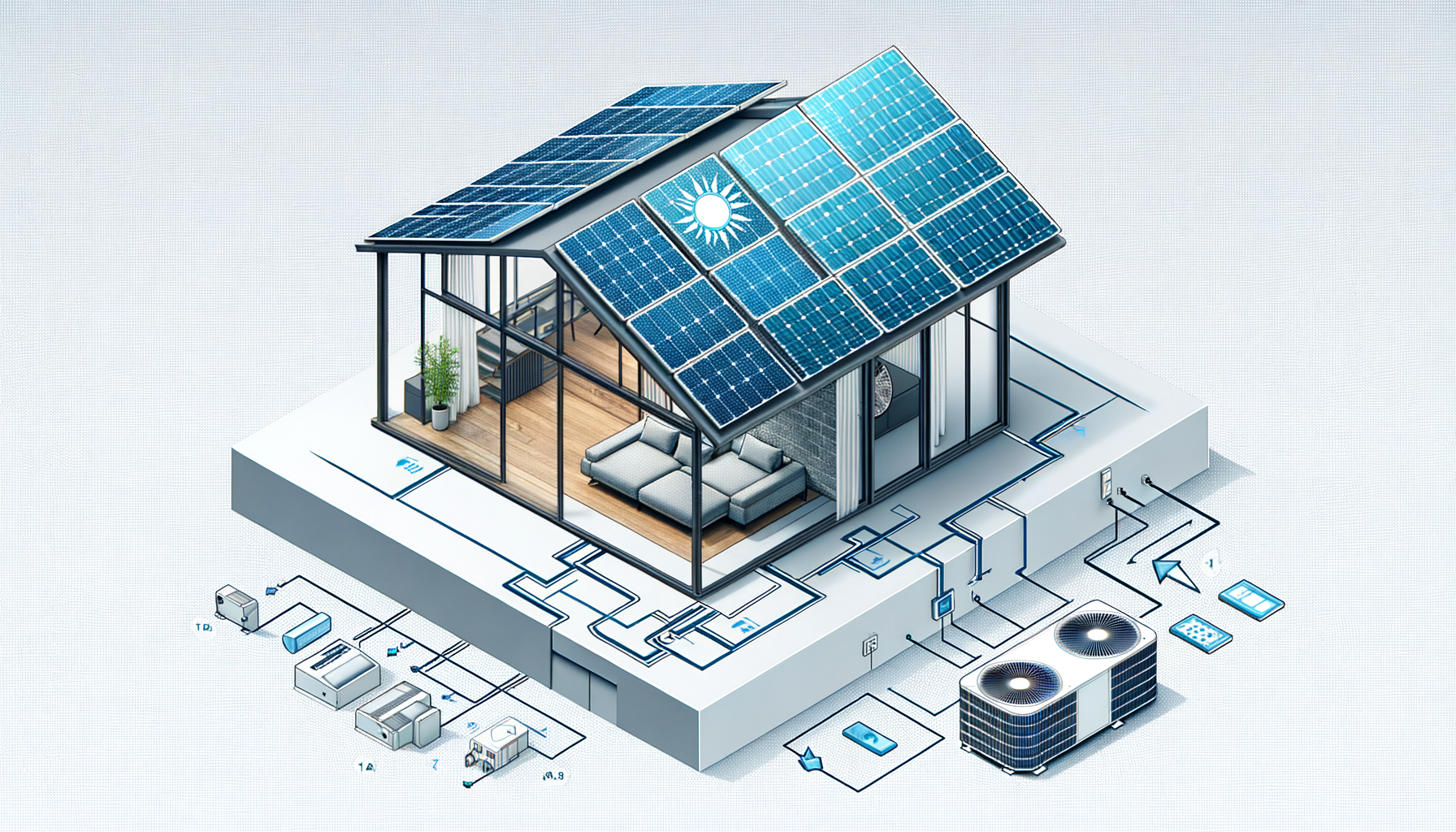Powering Your Air Conditioning with a Dedicated Solar Unit

Updated 4 months ago
Powering Your Air Conditioning with a Dedicated Solar Unit
With rising temperatures and the increasing costs of electricity, many homeowners are turning towards solar energy as an eco-friendly and cost-effective solution. One of the most enticing uses of solar power is for running air conditioning units, which can be a significant portion of home energy use, especially during the hot summer months. This article will explore the possibility of using a dedicated solar unit to power your air conditioning system, discussing benefits, setup, and the potential for substantial energy savings.
Why Opt for a Solar-Powered AC Unit?
The appeal of a solar-powered AC unit lies in its numerous benefits:
- Sustainability: By harnessing the power of the sun, a renewable energy source, you significantly reduce your carbon footprint.
- Cost Savings: Over time, solar power can offer significant savings on electricity bills.
- Energy Independence: Solar power allows homeowners to decrease their dependence on the grid.
Despite the upfront costs, long-term savings, alongside environmental considerations, make solar-powered AC units a worthy investment for many.
Types of Solar Air Conditioning Systems
There are two primary systems to consider when looking to run your AC with solar power:
- PV (Photovoltaic) Systems: These systems use solar panels to convert sunlight directly into electricity to power your AC unit.
- Thermal Solar AC Systems: These systems use the heat from the sun to cool your home, often through an absorption chiller.
For this article, we're focusing on the PV system as it’s more commonly used in residential settings.
The Setup: Components & Installation
A typical solar PV system to power an AC unit consists of:
- Solar Panels: The energy harvesters.
- Inverter(s): Converts direct current (DC) from the panels to alternating current (AC) used in homes.
- Batteries (Optional): For storing excess energy.
- Charge Controller: To protect batteries from being overcharged or overly discharged (if batteries are used).
- AC Unit: Ideally, a high-efficiency air conditioning system.
The installation involves mounting the panels, setting up the inverter and batteries (if used), wiring the components properly, and integrating the system with your home’s electrical grid. It's a job for a licensed professional due to the complexity and safety concerns.
Financing the Switch to Solar AC
The initial investment for a solar unit dedicated to an AC can be substantial. However, there are several financing options available, such as loans, leases, and power purchase agreements (PPAs), as well as potential incentives like the Federal Solar Tax Credit.
How Many Solar Panels Will You Need?
The number of solar panels required depends on several factors, including the efficiency of the panels, the power consumption of your AC unit, and the amount of sunlight your location receives. A rough estimate can be calculated by dividing the AC unit’s wattage by the production ratio of the panels.
Let's do the math:
- If your AC unit requires 3,500 watts (3.5 kW) and each panel is 300 watts with a production ratio of 1.3:
- You’ll need about 9 to 10 panels.
To get a precision estimate tailored to your home and conditions:
Maintenance and Longevity
Solar panels require minimal maintenance – regularly cleaning the panels and periodic checks by a professional should suffice. As for the AC system, the maintenance doesn't differ from a non-solar powered unit – you’ll still need to clean filters and schedule routine professional maintenance.
Solar panels can last 25 to 30 years or more, making them a long-term investment that can pay for itself several times over.
Considerations Before Going Solar
Before taking the leap, here are some important considerations:
- Your home’s suitability for solar
- Local climate and amount of sunshine
- Compatibility and efficiency of your current AC unit
- Local regulations and zoning laws
- Potential changes in energy consumption patterns
Solar AC System in Action: A Case Study
Consider John’s story: Living in sunny Arizona, he invested in a solar system exclusively for his 5 kW AC unit. With 15 panels installed, his system is not only covering all his cooling needs but also allows him to sell excess energy back to the grid.
His calculation for return on investment looked like this:
- Initial solar setup cost: $15,000
- Yearly savings on electricity: $1,200
- Federal tax credit: $4,500
Given these estimates, John will break even in about 8 years, while his panels are expected to last at least 25 years.
Wrapping Up
Switching to a solar-powered AC system is an investment in your home, finances, and the planet. With substantial savings over time, reduced carbon footprint, and increased independence from the grid, solar air conditioning is a compelling solution for your cooling needs.
If you're considering taking advantage of solar energy for your air conditioning system or have more questions about the process, now is the time to get started:
Sustainable living is not just a choice; it's a path towards a brighter, cleaner future. Take the first step and calculate your potential savings and impact today.




